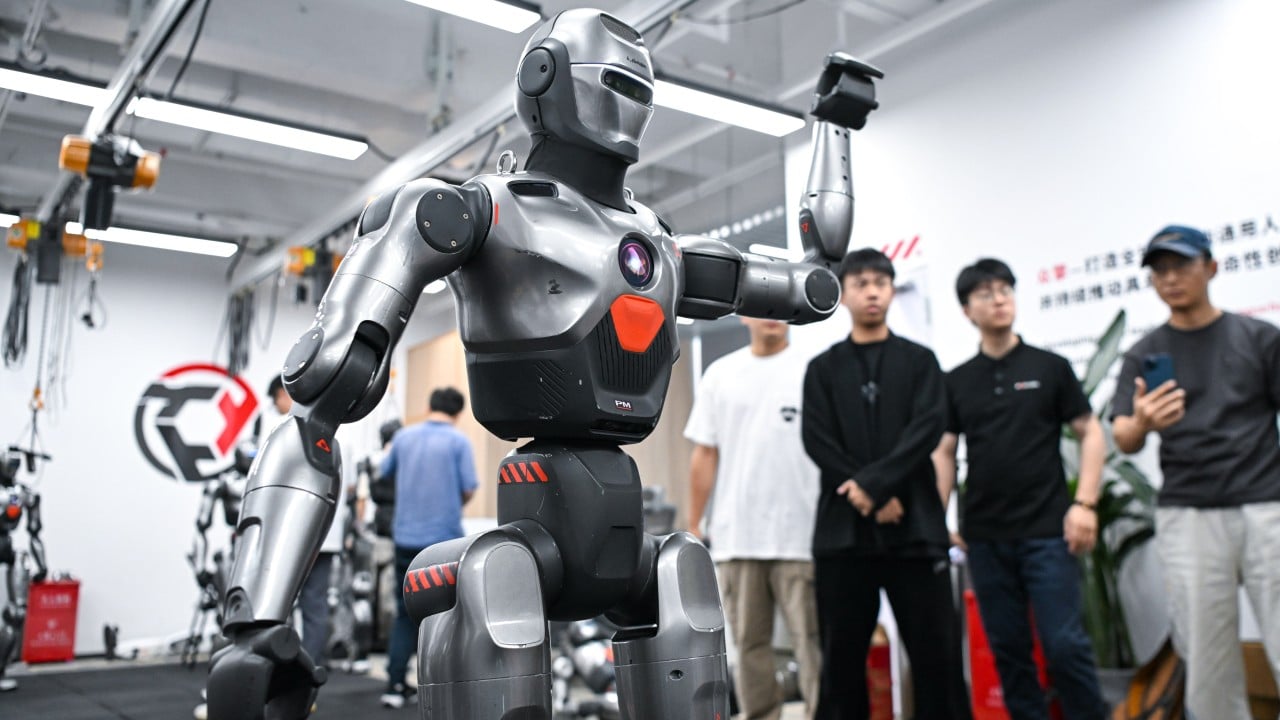To spur the broader adoption of humanoid robots, China may be inclined to offer end-user subsidies as the industry rapidly evolves and the robots become more capable, according to a report by investment bank Morgan Stanley.
Advertisement
The comments underscore a growing focus on the demand-side uptake of humanoid robotics. By comparison, most of the year-to-date government policies have focused on the supply side, such as funding for research and development, according to the report, published on Tuesday.
“We think an adoption push is very likely in China” during the second half of this year, said analysts, led by Sheng Zhong, in the report. They added that this “could strengthen market sentiment, and there are events to watch for a tech breakthrough”.
The report stressed that “downstream adoption” would become the sector’s main focus for the rest of the year, citing recent announcements of larger commercial orders.
“Robot models require a significant amount of training data to improve the success rate and efficiency,” it explained. “The push for adoption, and the collection of data from real working scenarios, could help to form a virtuous cycle for R&D and applications.”
Advertisement
Shenzhen-based UBTech Robotics secured a 90-million-yuan (US$12.5 million) purchase from state-owned car exporter MiEE (Shanghai) Automotive Technology – by far the largest deal in the humanoid industry, according to a Friday filing on the China Tendering and Bidding Public Service Platform.
Earlier this month, two prominent Chinese robotics start-ups, AgiBot and Unitree Robotics, landed orders totalling 124 million yuan from state-owned China Mobile, the world’s largest telecommunications firm by total subscribers.

